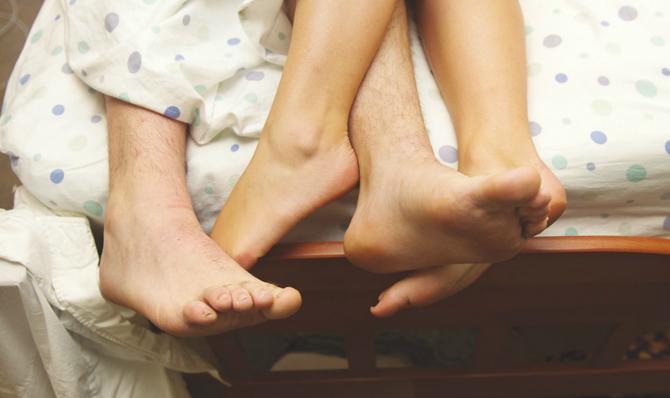The morning after I had sex for the first time, I woke up and took inventory.
Years of public school science classes, uncomfortable family discussions and weekends spent watching the dad on “Full House” lecture his daughters had prepared me for this.
But as I searched for this new self, I realized my prior suspicions had been correct.
I waited until after eating breakfast to pass my final judgment, just to be sure there wasn’t an internal aching from whatever I had lost that could have been mistaken for hunger.
When my stomach settled, I was still the same person I had been the day before.
I was just even more frustrated with the concept of virginity than I had been for most of my life.
During the Dark Ages, a woman was considered responsible and to have value if she abstained from sex until marriage. A virgin’s father would be given a large gift in return for her hand in marriage.
A woman remaining a virgin lowered the risk of less-than-desirable pregnancies. The economic benefit of the wedding gift was a huge help for most families in a time when they struggled to survive day to day.
It proved beneficial — unless you were a woman.
Fathers were permitted to beat or execute their daughters if they were thought to be sexually active. These crimes, known as honor killings, are still permissible by some modern governments.
This means males had ownership of females, and her worth as a human being was related to her sexuality.
Over the years, the idea came up that if we inspect a small membrane on the edge of the vaginal opening, we can determine if a female is sexually active. The hymen is made from leftover tissue after the uterus is formed, and was never meant to be a virginity indicator.
But somehow, we have managed to portray losing your virginity as a bloody, painful mess, where ripping is necessary. Even worse is the number of times I’ve heard, “Yeah, the first time just hurts a lot.”
Luckily, the hymen does not entirely cover the vaginal opening and is elastic in nature. With the proper lubrication and arousal, everyone can enjoy sex the first time.
The notion that virginity is something tangible that can be either given or lost sexually objectifies human beings. It implies we will lose a part of ourselves once we have had sex, which could lead to a belief that one day you will run out of the worth tied to sexual experiences.
Quite frankly, it seems a little twisted to manipulate someone into thinking that who they are will depend on their sex life.
The vocabulary we use to describe virginity is manipulative, as well. In my efforts to define virginity, I struggled to find a site that did not use the words “innocent” or “pure.”
To equate sexual inexperience with purity and innocence is to equate sexual experience with dirt and guilt. But we wouldn’t be alive without sex, and this comparison says that the lifeline for the human species is something shameful.
Finally, with this sacred notion of virginity comes fragility — the fear that if we even talk about sex it will be soiled. Sitting down with your child and having a talk about responsible sex will not make them go out and have sex, any more than talking about fire hydrants will make them start lighting fires.
This obsession with virginity has got to stop. It only increases the ties between self worth and sexual expression, sexually objectifies humans and shames us for the most natural function we serve.
Opinion: Attitudes toward virginity shame people and debase sex
By Jana King
October 8, 2013





